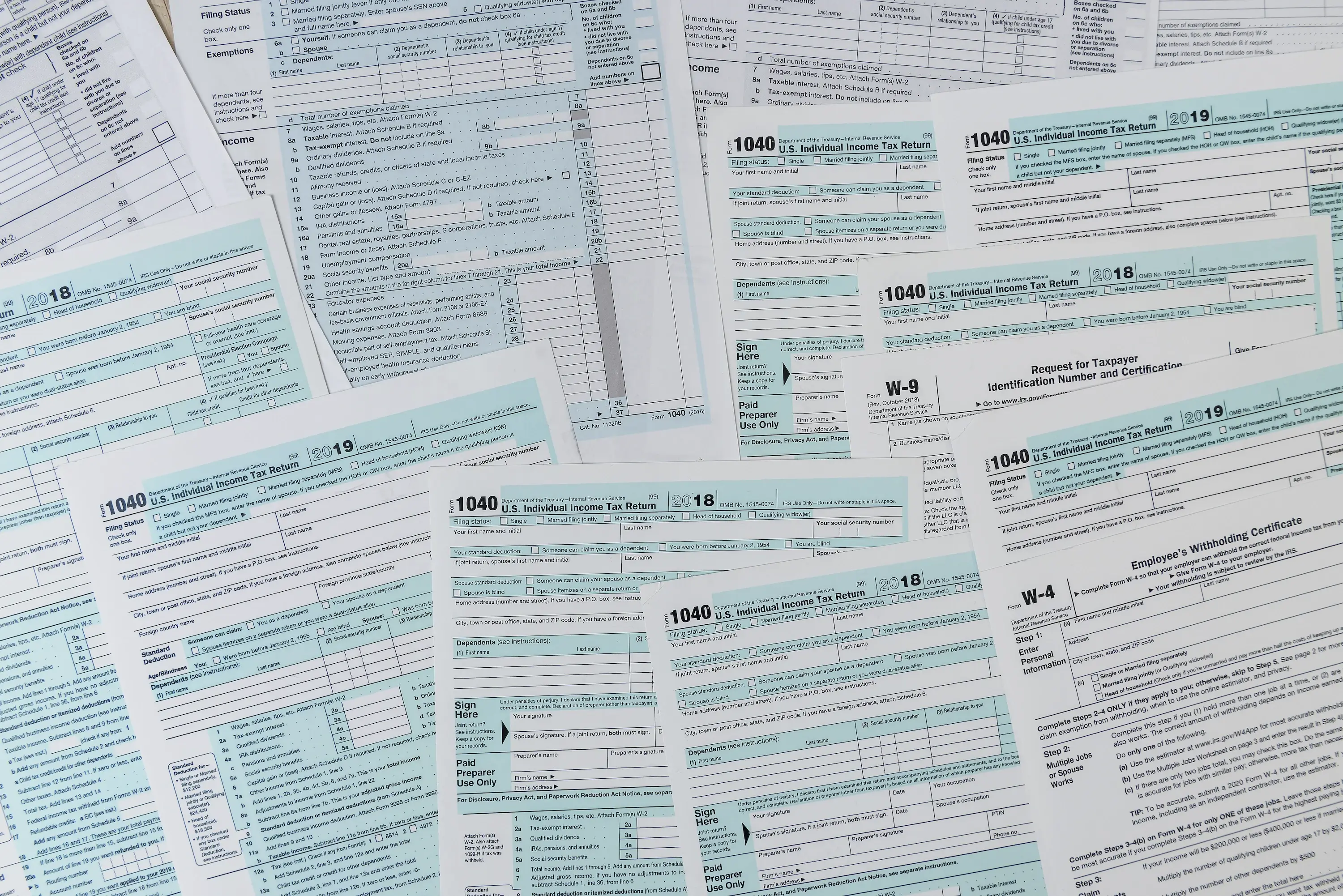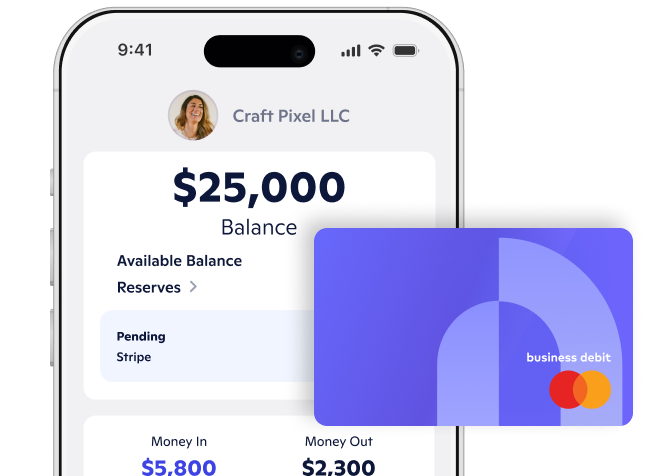
mid the chaotic juggling act of running a small business, it's no surprise that tax-related blunders occasionally slip through the cracks. Owners are grappling with limited time, limited resources, and lots of responsibilities! Nevertheless, CPA Crystal Stranger often hears the same laundry list of questions when her clients see their returns completed.
“It’s usually, why isn’t X on my tax return? Or, why is this number so small? I thought I had this amount that was deductible, right?” she said.
As a partner and COO at Cleer Tax and Bookkeeping, Crystal says myths about taxes fuel all of the questions she hears. She is the first to admit that the U.S. tax code is incredibly complex, with more than one million words, making it longer than the Bible!
“We were founded to help small businesses because there was a big gap, especially for corporate tax returns, where there was nobody serving those smaller companies.”
While there are many online guides, with a variety of tax tips for small business owners, we were curious what small business owners tend to misunderstand.
Crystal says some of the most common small business tax myths include:
- All business expenses are fully deductible
- Mixing personal and business expenses is acceptable
- Home office deductions will trigger an audit
- Vehicle expenses are fully deductible for business use
- Cash payments don't need to be reported
We’ll dive into more detail about these myths and clear up any misconceptions.
Myth 1: All business expenses are fully deductible
While many business expenses are deductible, Crystal says it’s very important for small business owners to understand that not all business expenses are fully deductible.
She points to meals and entertainment as the most common source of confusion, especially because the IRS guidelines change. “Prior to the Tax Cuts and Jobs Act, meals and entertainment were one category. It was all lumped together, and you could deduct 50% of it. Then, for a couple of years around the pandemic, the meals deduction was raised to 100%. Then it changed again. Now it's back down to 50%.”
The deductibility of business expenses depends on various factors. Here are some key points to consider:
- Ordinary and necessary expenses: The IRS allows businesses to deduct ordinary and necessary expenses. An ordinary expense is one that is common and accepted in your industry, while a necessary expense is one that is helpful and appropriate for your
- Deduction limitations: Certain expenses may have limitations on the amount that can be deducted. For example, the IRS may impose limits on deductible interest expenses, charitable contributions, or certain travel expenses.
Myth 2: Mixing personal and business expenses is acceptable
Personal expenses are those that are primarily for personal benefit or use and are not directly related to the operation of your business. Examples of personal expenses that are generally not deductible for a small business include rent or mortgage payments, clothing, and vacations.
Crystal says it’s very important to keep personal and business expenses separate. While there are many reasons why this separation is important, she stresses it will help with proper deduction and compliance with tax regulations, as well as to minimize audit risks.
While business expenses are deductible, and personal expenses are not, there can be exceptions. Crystal says she once had a client who worked as a movie script supervisor and wanted to deduct $25,000 worth of gowns she wore on the red carpet. Crystal was able to argue that in the client’s industry, the dresses had a valid business application.
“I was able to argue that it was an ordinary practice in the entertainment industry for her to be buying dresses for events that she was required by her employer to attend. In the end, she was able to deduct around $6,000.”
In order to make the case to have a personal item covered as a business expense, you’ll need to determine its business relevance.
It’s important to remember that mishandling personal expenses can lead to legal and financial complications. Crystal recommends consulting with professionals who can provide guidance based on your industry and business structure.
An easy way to ensure you don’t mix business and personal expenses is by setting up a small business checking account. Novo offers fee-free business checking accounts with no monthly minimums, robust integrations, invoicing tools, and more. Get started by filling out an application.
Myth 3: Home office deductions will always trigger an audit
Between 2019 and 2021, the U.S. Census Bureau says the number of people primarily working from home tripled, including many small business owners. But not all small businesses qualify for a home office deduction.
“You have to meet the ordinary and necessary requirements for a home office deduction. This means exclusive and regular use. What I usually recommend is documenting the amount of space that you use exclusively for work. Take pictures of your office setup, make a drawing of the floor plan, or submit floor plans. The IRS wants to see the room and the square footage, not a random estimate,” she says.
Crystal says the IRS provides two methods for calculating the home office deduction:
- The simplified method allows for a standard deduction based on the square footage of the home office.
- The regular method requires more detailed record-keeping of actual expenses related to the home office
When using the regular method, you can only deduct the portion of your home expenses that is directly attributable to the home office. This is typically calculated based on the square footage of the home office compared to the total square footage of your home. For example, if your home office occupies 10% of the total square footage of your home, you may deduct 10% of eligible home expenses.
The simplified method can be advantageous if you own your home because none of the deduction has to be recaptured when you sell.
She reminds her clients to keep detailed records and documentation to support the home office deduction in case they are audited. This includes records of home expenses, such as mortgage or rent payments, utilities, repairs, and maintenance costs.
In the event of an audit, the IRS may assess the legitimacy of the claim. It can lead to adjustments or disallowance of the deduction.
Myth 4: Vehicle expenses are fully deductible for business use
When Crystal explains the proper way to deduct vehicle expenses to small business owners, they are often surprised. She says most assume that all vehicle expenses are deductible, which is a myth.
“If you're commuting to your office, those miles you spend commuting to your office don't count. The calculation for what’s deductible begins after you get to your office, and only if you go to a different place from there.”
Crystal recommends using software to keep a detailed log, or a mileage tracker to record the purpose, date, starting and ending mileage, and business-related destinations for each trip. You should also choose a deduction method.
You can opt for the standard deduction which means multiplying the total business miles driven by the IRS standard mileage rate (a predetermined rate per mile, which can change annually). For example, if you drove 5,000 miles for business and the standard mileage rate is $0.585 per mile, your deduction would be $2,925 (5,000 miles x $0.585).
The other option is the actual expense method, which involves tracking and deducting the actual expenses associated with the business use of the vehicle, such as fuel, insurance, repairs, maintenance, depreciation, and registration fees.
Regardless of which method you choose, Crystal says it's crucial to keep accurate and organized records to support your vehicle deductions. This includes mileage logs or records of business trips, receipts and invoices and vehicle-related expenses like your registration fees, lease payments, and interest on loans.
Myth 5: Cash payments don't need to be reported
Regardless of how you get the cash, even if it is via a digital platform like PayPal, Venmo, or Square, Crystal says “Any revenue you earn from any source has to be reported.”
What happens if you don't report the cash? The IRS takes non-compliance very seriously and can not only fine you, they can pursue criminal charges. If your small business has any cash transaction over $10,000, it must also be reported using Form 8300, This requirement applies to all types of business structures, including sole proprietorships, partnerships, corporations, and LLCs.
Crystal offers these tips for small business owners managing cash transaction records:
- Establish a system: Set up a reliable system to track and record cash transactions. This can be a manual system using physical cash registers, receipt books, and ledgers, or you can use electronic tools such as accounting software or point-of-sale (POS) systems with cash management features.
- Issue receipts: Provide a receipt for every cash transaction, regardless of the amount. The receipt should include the date, transaction amount, description of the goods or services, and any other relevant details. Make sure to keep a copy of each receipt for your records.
- Regular reconciliation: Regularly reconcile your cash register or cash drawer against the recorded sales and transactions. This involves comparing the actual cash on hand to the total cash transactions recorded. Any differences should be investigated and resolved promptly.
- Backup records: Maintain backup copies of your cash transaction records in a secure location, either physically or digitally. This protects your data in case of loss, damage, or system failures.
Final Word
The bottom line for a small business owner is that it's always best to consult with a qualified tax professional or accountant to ensure you comply with the tax laws and to receive accurate advice tailored to your specific situation.
Novo Platform Inc. strives to provide accurate information but cannot guarantee that this content is correct, complete, or up-to-date. This page is for informational purposes only and is not financial or legal advice nor an endorsement of any third-party products or services. All products and services are presented without warranty. Novo Platform Inc. does not provide any financial or legal advice, and you should consult your own financial, legal, or tax advisors.
Novo is a fintech, not a bank. Deposit account services provided by Middlesex Federal Savings, F. A.; Member FDIC.
%201.png)
.png)




